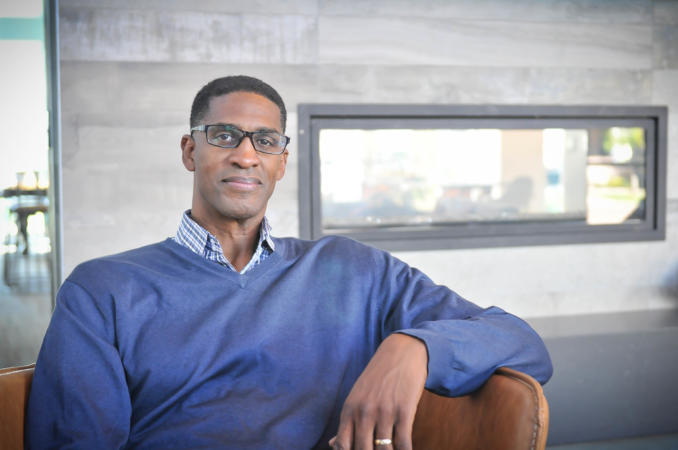In his NBA prime, Charles Smith was an Olympic athlete who took home both a gold and a bronze medal, and played as a power forward for the likes of the Los Angeles Clippers, the New York Knicks, and the San Antonio Spurs.
Today, however, Smith is bringing his talents from the basketball court to the boardroom thanks to his new partnership with Fierce Conversations. And, he says, he specializes in mentoring professionals who are looking to change careers.
“Fierce Conversations has over 250 blue-chip companies as clients,” he told AfroTech. “I am a Master Facilitator helping companies increase their bottom line through effective communications. What gets talked about in a company, how it gets talked about, and who is invited to the conversation determines what will happen and what won’t happen. The skills have changed my life professionally and personally. I understand the Fierce technology virtual training solutions because the learning process is similar to my portfolio of patents for customizable applications for video ingestion in which I developed during the late ’90s. The technology is scalable, flexible, and you can learn at your own pace. Fierce solutions will have the same impact in the sports industry as they are having with corporations.”
What, perhaps, most people are unaware of — and what Charles Smith alluded to — is his extensive work off the basketball court. He pursued coursework in Seton Hall’s MBA program, and currently holds three patents. This put him at a unique intersection between sports, business, events, and technology.
While it doesn’t seem probable, at first glance, to translate the lessons from sports to success in the boardroom, Smith says there is a lot that business professionals — especially those looking to switch careers — can learn from the sports world.
“During and after my Fierce training program, I reflected so much on my sports career. I couldn’t help but think about all the hard conversations I should have had, wanted to have but wasn’t equipped with the tools or knowledge to have them,” he said. “These conversations were no doubt the difference between wins and losses on each team over my 18-year sports career. Coach Greg Popovich was the absolute BEST communicator of all my coaches. However, most coaches are ‘versationalist,’ not ‘CON-versationalist.’ ‘Con’ means with. Most coaches want things done their way with very little participation from players.”
A study was done by Harvard Business Review that says 54% of respondents admitted to trusting strangers more than their own bosses. According to Smith, there are many answers as to why this number is so high or why this exists. C-Suite executives are similar to coaches when it comes to dealing with people. Across corporate divisions, leaders talk about the concept of team.
And, in a post-COVID world, Charles Smith believes conversations are more important than ever.
“If there is ever a time where we need conversational tools, it’s post-COVID,” he said. “People simply need to be heard and need to know someone is listening. For example, if five people, including the CEO, looked out of the same window and reported on what they saw, you’d get five different reports. Today, there is so much value to having multiple perspectives, even if they are competing perspectives. The CEO’s ability to use everyone’s input and to cite examples letting them know their input was necessary for him to make the best decision for the organization is priceless regarding the overall team.”
Editorial note: Portions of this interview have been edited & condensed for clarity.

















